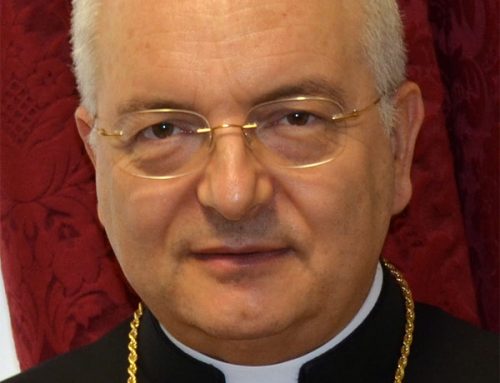Diocese rallies in support of wounded and the grieving
A Bishop in Syria has described desperate efforts to tend to the injured and the dying following multiple Daesh (IS) attacks in Tartous and Jableh, which left more than 200 dead and nearly 650 injured. Bishop Antioine Chbeir stressed that the attacks on Monday 23 May in his diocese were the first of their kind in an area where displaced Syrians had gathered in their hundreds of thousands, believing it to be one of the last remaining safe areas of the country.
The Maronite Bishop of Latakia described the desperate efforts of clergy and others from the diocese helping the wounded and the dying, saying that the next day his priests had begun burying the dead.
Speaking to Aid to the Church in Need by telephone, Bishop Chbeir said: “We are trying to help the people and are taking care of the wounded. It is a very dramatic situation and when the disaster struck we wondered if we could cope.
“Right now, our priests and people are on the scene. They are visiting the people – many of them have broken legs and deep wounds, not to mention the psychological effects.” In a government-controlled area which has escaped almost completely unscathed in spite of five years of war, the bishop warned that the attacks on the two coastal cities, said to be perpetrated by Daesh (ISIS), may prompt a surge in people fleeing Syria.
The bishop said that there were five explosions on Monday in Jableh killing 110 people and wounding 340 and that on the same day at around 9.30am in Tartous there were four blasts which left more than 100 dead and 300 injured. The bishop, who recalled hearing the attacks in Tartous which took place less than two miles from his home, said: “These attacksare the first we have had here during this time of war and they will have dramatic consequences. “If you do not have safe areas in Syria, they will leave the country – probably for good… Many of them will go by sea.”
The bishop spoke of the desperate need to rebuild hope. “Today, we are more determined than ever to stay in Syria. “Every time we have a bombing, we will do whatever it takes to stay in the country where we are living.”
The bishop denounced the attack, confirming reports that it was perpetrated by Daesh (IS), who have claimed responsibility for the atrocity. He said: “IS are barbaric people. The worst thing about it is that they are doing these awful things in the name of God. In the name of God, they are killing people everywhere.”
But the bishop said retaliation was not the answer. He said: “We must call for peace. We must not kill these criminals. We must turn the criminal into a human being who cares for human life.”
Reports from the region state that Daesh’s apparent aim was to strike the Assad regime in its core stronghold, which is backed by the nearby Russian fleet.
The bishop, who is a leading project partner for Aid to the Church in Need in the region, said that his response to the crisis builds on the foundations of existing ACN help for thousands of displaced people in the region, providing them with food, shelter and medicine. One of the blasts in Tartous took place at a bus station which a delegation from ACN drove past during a project-assessment and information-gathering trip in January.
Bishop Chbeir said: “First of all, we need physical and material help, just to help those affected to have something to eat and to help them take care of those who are suffering the most.
“We care for people not because of their particular religion but because they are human beings.”
He said the people’s needs had increased because the Syrian economy was failing with food and other basic items in short supply.
“Tartous is in the doldrums. In the last two weeks, the Syrian currency has lost 40 percent of its value. The Syrian state has no income. It is always spending. The economic sanctions against Syria are really affecting the people.”
He concluded: “In this month of May, we are praying to Our Lady to help us. Thank you ACN for standing by us.”
John Pontifax

